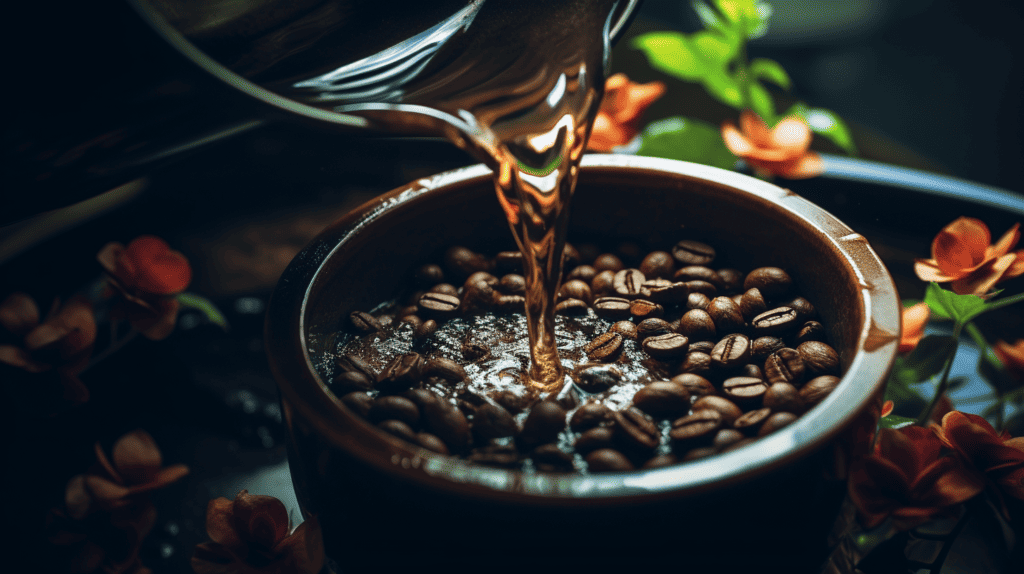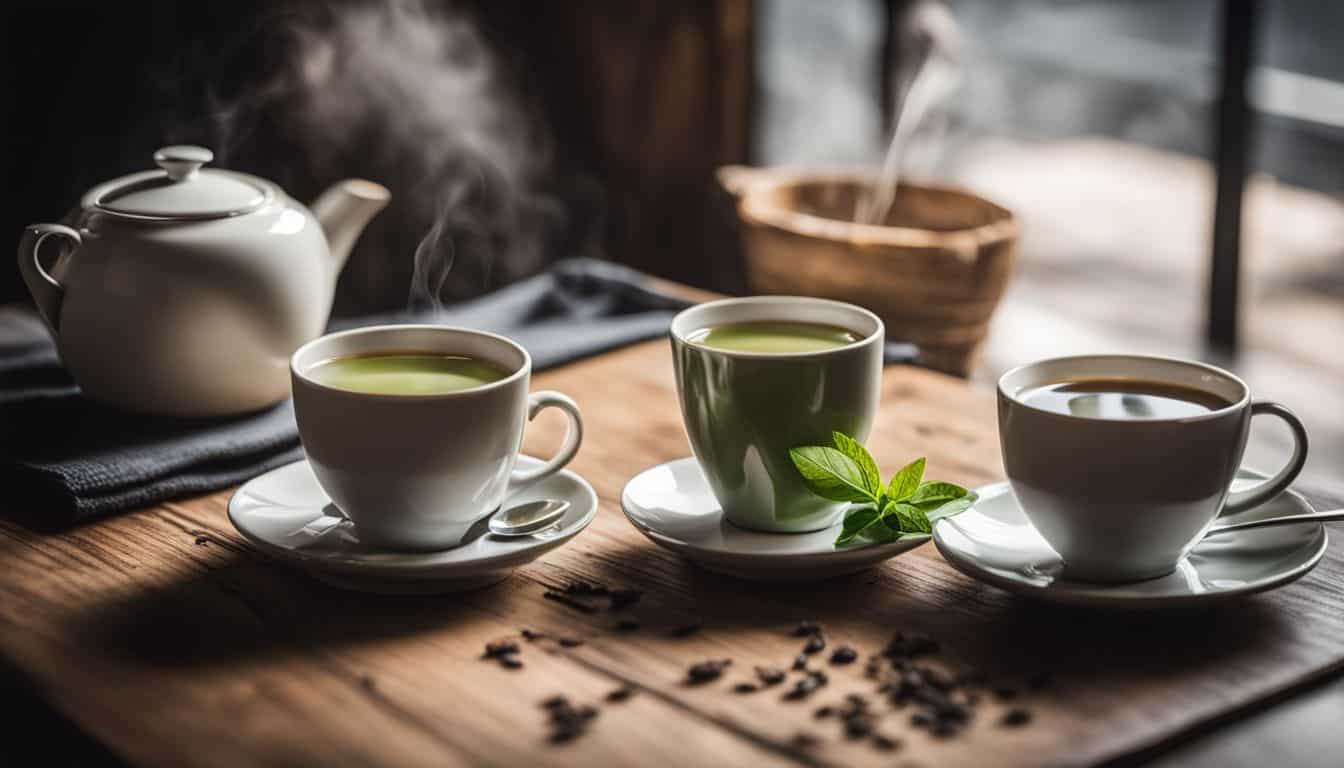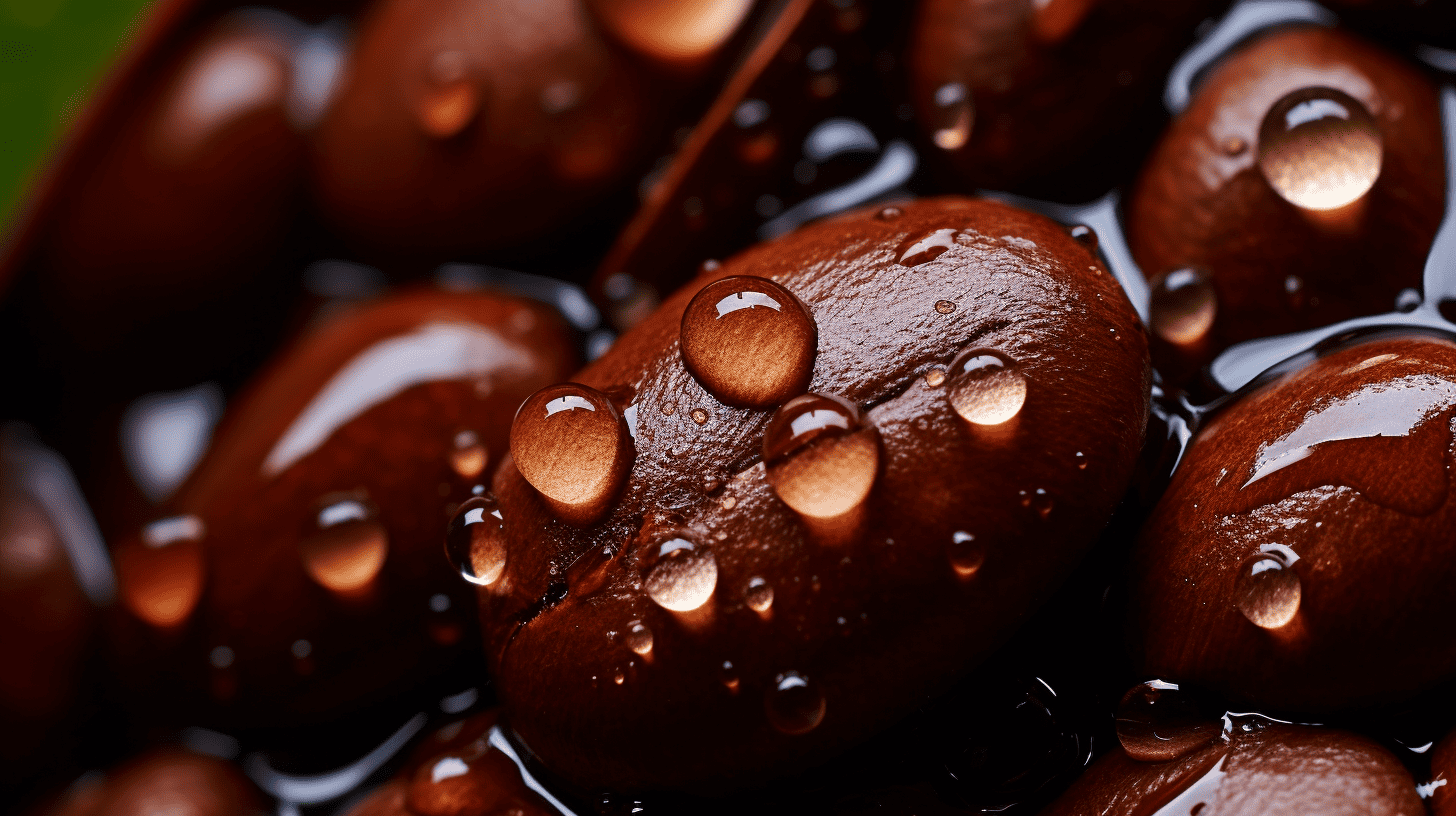Ever feel confused about the amount of caffeine in your daily cup of tea or coffee? I know, it’s puzzling. Today we will look at the caffeine in green tea vs black tea vs coffee. Especially since different types of tea and coffee contain varying caffeine levels – quite a challenge for us caffeine enthusiasts.
This blog will simplify that puzzle by comparing the caffeine content in green tea, black tea, and coffee. Intrigued? Well then, let’s dive into the world of caffeine!
Key Takeaways
- Green tea, black tea, and coffee all contain different levels of caffeine. Green tea has the least amount of caffeine, followed by black tea, and then coffee.
- Caffeine can have positive effects like increased alertness and focus, but it can also negatively impact sleep and anxiety levels if consumed in excess.
- Each beverage – green tea, black tea, and coffee – has its own unique flavor profile and cultural significance. It’s important to consider personal preference and taste when choosing which one to consume.
Caffeine Comparison: Green Tea vs Black Tea vs Coffee
Green tea, black tea, and coffee all contain different levels of caffeine, which can have varying effects on our bodies.
Caffeine content in each beverage
As a coffee enthusiast, you may already know that caffeine varies greatly among different beverages. Here’s a comparison of the caffeine content in green tea, black tea, and coffee:
| Beverage | Caffeine Content per 8-ounce Cup |
|---|---|
| Green Tea | 25 to 48 milligrams |
| Black Tea | 40 milligrams |
| Brewed Black Decaf Tea | 2 milligrams |
| Coffee | Approximately double than black tea |
| Bottled Tea | Varies by brand and type |
It’s essential to note that these figures can fluctuate depending on the brand and the brewing method. For example, unbrewed coffee beans contain a caffeine content of around 1.1-2.2%, while tea leaves have about 3.5%. With this information, you can make informed decisions about your caffeine intake based on your preference and sensitivity.
Stimulant effects
The caffeine in green tea, black tea, and coffee has stimulant effects on the body. Caffeine helps increase alertness and focus, making it a popular choice for those who need a pick-me-up during the day.
However, it’s important to note that caffeine can also have negative effects on sleep and anxiety levels. Consuming too much caffeine or drinking it too late in the day can interfere with quality sleep and may contribute to feelings of restlessness or nervousness.
Additionally, high levels of caffeine intake can lead to increased blood pressure in some individuals. It’s always best to be mindful of your personal tolerance for caffeine and adjust your consumption accordingly to enjoy its benefits without unwanted side effects.
Health Benefits and Drawbacks of Caffeine
Caffeine offers increased alertness and focus, but it can negatively affect sleep and anxiety levels.
Increased alertness and focus
Caffeine in green tea, black tea, and coffee can help increase alertness and focus. Black tea contains about 40 mg of caffeine per 8-ounce cup, while green tea has around 25 to 48 mg.
Coffee typically has more caffeine than both teas. The caffeine stimulates the central nervous system, making you feel more awake and focused. However, it’s important to remember that too much caffeine can lead to restlessness or jitters, so it’s best to consume these beverages in moderation for optimal benefits.
Potential negative effects on sleep and anxiety
Too much caffeine from coffee, black tea, or green tea can have negative effects on sleep and anxiety. Caffeine is a stimulant that can make it harder to fall asleep or stay asleep at night.
It can also increase feelings of anxiety and restlessness. For some people, even small amounts of caffeine can affect their sleep and worsen symptoms of anxiety. Suppose you’re sensitive to caffeine or already struggle with sleeping problems or anxiety. In that case, you may want to limit your consumption of these beverages later in the day or consider opting for decaffeinated options instead.
Which is Better for Health: Green Tea, Black Tea, or Coffee?
When it comes to determining which beverage is better for our health – green tea, black tea, or coffee – several factors need to be considered, including antioxidant content and potential benefits for heart health.
Additionally, those with caffeine sensitivity should take into account the varying levels of caffeine in each drink.
Antioxidant content
The antioxidants found in green tea, black tea, and coffee can provide various health benefits. Green tea is known to contain high levels of catechins, which are powerful antioxidants that help protect the body against damage from harmful free radicals.
Black tea also contains antioxidants called theaflavins and thearubigins, which have been shown to have potential benefits for heart health. Coffee is rich in chlorogenic acid, another antioxidant that may help reduce inflammation in the body.
So, whether you choose green tea, black tea, or coffee, you can benefit from their antioxidant content.
Potential benefits for heart health
Green tea, black tea, and coffee all contain antioxidants that may have potential benefits for heart health. Green tea is especially known for its high levels of catechins, which are a type of antioxidant that may help reduce the risk of heart disease by improving blood flow and reducing inflammation.
Black tea also contains antioxidants called theaflavins, which may have similar effects on heart health. Coffee has been associated with a lower risk of certain types of heart disease as well, possibly due to its antioxidant content.
Ultimately, choosing the right beverage for heart health depends on personal preference and overall lifestyle factors.
Considerations for caffeine sensitivity
For those who are sensitive to caffeine, it’s important to consider the beverage you choose. Green tea contains less caffeine than black tea and coffee, making it a potentially better option for those who want to limit their intake.
Black tea has about half the amount of caffeine as coffee, while green tea has even less. By choosing green tea over black tea or coffee, you can still enjoy a hot beverage without experiencing as many stimulant effects.
Remember that individual sensitivity may vary, so it’s always best to listen to your body and choose what works best for you when it comes to caffeine intake.

Other Factors to Consider
Taste and personal preference play a significant role in determining which beverage is the best choice for you. Availability and cultural significance should also be taken into consideration when deciding between green tea, black tea, or coffee.
Taste and personal preference
When it comes to choosing between green tea, black tea, and coffee, taste and personal preference play a big role. Each beverage has its own unique flavor profile that appeals to different people.
Some may prefer the bold and robust taste of coffee, while others enjoy the earthy and slightly bitter taste of black tea. Green tea, on the other hand, has a more delicate and grassy flavor with a hint of sweetness.
It’s important to try each one and see which you enjoy the most. Personal preference also extends to how you like your beverages prepared – whether you prefer it hot or iced, sweetened or unsweetened.

Availability and cultural significance
In terms of availability, all three beverages – green tea, black tea, and coffee – are widely available in various forms. Green tea and black tea can be found in bags or loose-leaf form at most grocery stores and specialty tea shops.
Coffee is also readily available in whole bean or ground form, with a wide range of options to choose from.
When it comes to cultural significance, each beverage has its own rich history and traditions. Green tea holds great cultural significance in countries like Japan and China, where traditional tea ceremonies are practiced.
Black tea is often associated with British culture and is a common choice for afternoon tea. Coffee has a strong presence in many cultures around the world, particularly those with a long-standing café culture.
I personally enjoy exploring the different flavors that each beverage offers, as well as appreciating the cultural aspects that come along with them. The availability of these drinks allows me to experience their unique characteristics while also considering my personal preferences and caffeine intake needs.
Conclusion: Caffeine In Green Tea Vs Black Tea Vs Coffee
When it comes to choosing between green tea, black tea, and coffee, it all depends on your personal preference and how much caffeine you want. Black tea has more caffeine than green tea but less than coffee.
Green tea is the least caffeinated option. Consider also the taste and cultural significance of each beverage. So go ahead, pick the one that suits you best and enjoy!
FAQs on Caffeine In Green Tea Vs Black Tea Vs Coffee
1. Which drink contains more caffeine: green tea, black tea, or coffee?
Coffee generally contains the most caffeine, followed by black tea and then green tea.
2. Is it safe to consume caffeine from these beverages?
Moderate consumption of caffeine is generally considered safe for most people, but it’s important to be mindful of your personal tolerance and potential side effects such as sleep disturbances or increased heart rate.
3. How does the caffeine content in these drinks affect my energy levels?
Caffeine acts as a stimulant and can increase alertness and temporarily boost energy levels, but the effects may vary depending on individual sensitivity and other factors like hydration and overall health.
4. Can I switch from coffee to green or black tea to reduce my caffeine intake?
Yes, switching from coffee to green or black tea can help reduce your overall caffeine intake as they typically contain less caffeine per serving. However, it’s important to note that everyone responds differently to caffeine, so pay attention to how your body reacts when making changes in your beverage choices.




Leave a Reply